Aug 26, 2025 1:53 PM
Blindfold Test: Buster Williams
Buster Williams, who at the age of 83 has been on the scene for 65 years, had never done a Blindfold Test. The first…
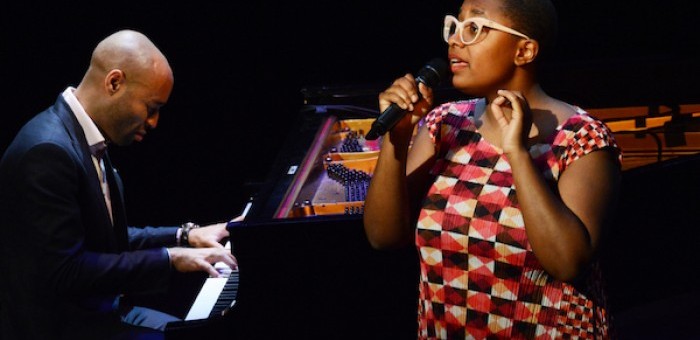
Aaron Diehl (left) and Cécile McLorin Salvant perform at the National Jazz Museum in Harlem’s annual benefit concert on June 14.
(Photo: Nina Flowers)New York jazz supporters seem to emerge each spring, with full houses attending benefit concerts that help sustain the jazz community and the critically important work of the city’s jazz organizations. The National Jazz Museum in Harlem 2017 Benefit Concert, following galas by the Jazz Foundation of America, Jazz at Lincoln Center and The Jazz Gallery, once again confirmed the dedication of the large number of people devoted to nourishing the music this country has given to the world.
The museum’s fourth annual celebration of its near 20-year mission to “preserve, promote and present jazz by inspiring knowledge, appreciation and the celebration of jazz locally, nationally and internationally” was held June 14 at Hunter College’s Kaye Playhouse and hosted by WBGO radio personality Rhonda Hamilton. The multi-generational event honored 91-year-old NEA Jazz Master Randy Weston with a Legends In Jazz Award, while also presenting a performance by the not-yet-14-year-old pianist Joey Alexander.
Trustees Timothy Porter and Daryl Libow joined Hamilton on stage to apprise the audience on the past year’s developments advancing the museum’s goals, including the approaching first anniversary of its relocation to a new space and the initiation of partnerships with Microsoft and Apple Music that have resulted in increased patronage.
“Jazz is not only America’s music,” Libow proclaimed. “It is a metaphor for the best of the American spirit, innovation, improvisation and integration. And the National Jazz Museum in Harlem is dedicated to the preservation and perpetuation of jazz in all forms—past, present and future.”
The future of jazz was visible in the solo piano recital by the teenaged Alexander. The Indonesia-born, two-time Grammy-nominated pianist opened his set digging deep into the music’s roots, with a performance of the spiritual “He Hideth My Soul.” Beginning deliberately, he lyrically presented the 19th-century hymn’s forlorn melody with a powerful sound that filled the house with ringing notes, before embarking on an improvisation that mined the song for its modern harmonic and rhythmic implications, interjecting bold counterlines and rapidly executed scalar progressions.
Ending with a repetitive rhythmic motif, he seamlessly segued into Thelonious Monk’s “Well You Needn’t,” on which he demonstrated a thorough knowledge of the jazz piano tradition, interpolating boogie-woogie, stride and free-jazz segments into the classic composition.
Pausing briefly to acknowledge the audience’s resounding applause, Alexander returned to the keyboard to embark on an extended exploration of Weston’s “Blue Moses.” Beginning with an original introduction that briefly referenced the composer’s “High Fly,” powerful dark left-hand chords set up his entry into the song’s infectious melody, where his prodigious technique came to the fore. He exhibited incredible two-handed independence, spinning out dizzying contrapuntal lines of Afro-Cuban and European classical music influences, as well as his own strikingly original melodic creations, in a commanding tour de force presentation that garnered a standing ovation.
Coming to the stage to accept the museum’s Legends In Jazz Award (presented by board member Ken McIntyre, son of multi-instrumentalist/composer Makanda Ken McIntyre), Weston asserted, “I was told to say something. I’ve got two words: Joey Alexander. He took my ‘Blue Moses’ and did something else with it.”
The DownBeat Hall of Fame inductee went on to expound on Africa’s role in jazz’s ongoing development and paid homage to the many artists he had the good fortune to hear while growing up in Brooklyn. “Every day I appreciate Louis Armstrong even more than the day before,” he proclaimed. Weston concluded with the directive, “Support the music. We need it!”
The awards ceremony continued with presentation of the NMJH Jazz and Community Leadership Awards to philanthropist/attorney Arthur Barnes (presented by former Harlem Congressional Representative, the Honorable Charles Rangel, and Lloyd Williams, President of the Greater Harlem Chamber of Congress) and to JazzMobile, whose award was accepted by the more than half-century-old organization’s Executive Director and CEO, Robin Bell-Stevens (daughter of the late Duke Ellington Orchestra bassist Aaron Bell).
The music continued with the duo of two-time Grammy-winning vocalist Cécile McLorin Salvant and the American Pianists Association Cole Porter Fellow, pianist Aaron Diehl. The pair opened their set with Harry Warren’s “I Only Have Eyes For You,” on which the singer at times demonstrated her unabashed appreciation of Betty Carter.
On Bert Williams’ “Nobody,” Salvant sang dramatically over Diehl’s portentous chords, ending with a powerful a cappella reading of the downhearted song’s final chorus, sans microphone. Diehl’s racing piano introduced Bob Dorough’s “Devil May Care,” which had the singer delivering her words with a youthful, girlish verve and Diehl soloing with dynamic rhythmic daring.
The timeliness of Big Bill Broonzy’s “Black, Brown And White” was not lost on the integrated crowd as Salvant sang the words “If you’re white, that’s all right, if you’re brown, stick around, but if you’re black, oh brother get back, get back, get back” over Diehl’s rolling barrelhouse piano chords.
The singer rendered the Gershwins’ “My Man Is Gone” with a convincing thespian flair that would easily win her a starring role in a Broadway production of Porgy & Bess. The mood then moved from tragic to optimistic with the duo’s medley of the Ethel Waters-associated songs “Ain’t Gonna Sin No More” and “Bread And Gravy.”
On “I Didn’t Know What Time It Was,” Diehl’s commanding originality as both an accompanist and soloist came into full view as he stretched out for a few distinctive choruses between Salvant’s deeply personal reading of Lorenz Hart’s lyric to the popular Richard Rodger’s melody.
The set reached its emotive climax with the duo’s rendition of Jimmy Rowles’ “The Peacocks,” on which Salvant sang Norma Winstone’s mournful words with sensitivity and passion. She then sang “My Man” in French, before ending the show on a humorous note with “The Ballad Of The Shape Of Things,” a folk song brought to jazz audiences by Blossom Dearie, which tells the tale of geometry and justice coming together to punish an adulterous lover. It had the audience roaring with laughter. DB
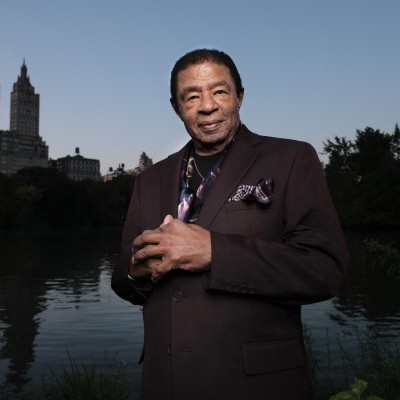
“What I got from Percy was the dignity of playing the bass,” Buster Williams said of Percy Heath.
Aug 26, 2025 1:53 PM
Buster Williams, who at the age of 83 has been on the scene for 65 years, had never done a Blindfold Test. The first…
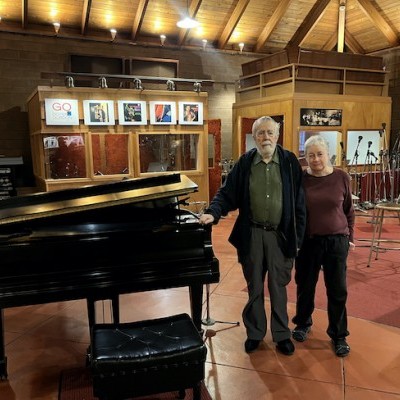
Don and Maureen Sickler serve as the keepers of engineer Rudy Van Gelder’s flame at Van Gelder Studio, perhaps the most famous recording studio in jazz history.
Sep 3, 2025 12:02 PM
On the last Sunday of 2024, in the control room of Van Gelder Studio, Don and Maureen Sickler, co-owners since Rudy Van…
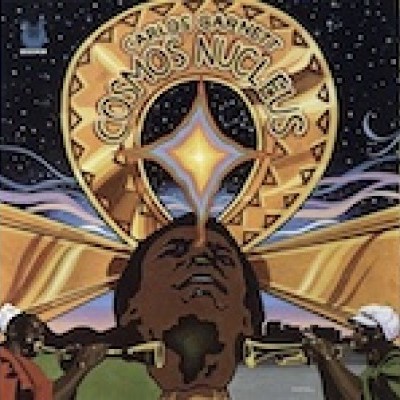
The Free Slave, Cosmos Nucleus and Sunset To Dawn: three classic Muse albums being reissued this fall by Timer Traveler Recordings.
Aug 26, 2025 1:32 PM
Record producer and “Jazz Detective” Zev Feldman has launched his next endeavor, the archival label Time Traveler…
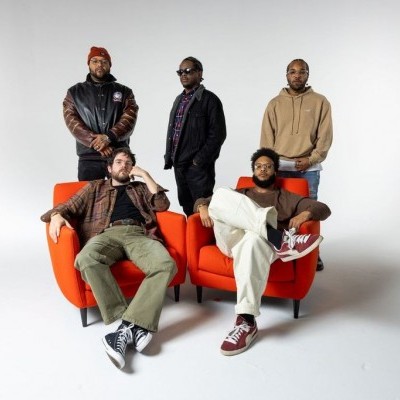
Butcher Brown, clockwise from top left: Marcus Tenney, DJ Harrison, Morgan Burrs, Corey Fonville and Andrew Randazzo. (Keyboardist Harrison couldn’t make the gig, so special guest Jacob Mann sat in with the band at the Reno Jazz Festival.)
Aug 19, 2025 12:41 PM
The band known as Butcher Brown has enjoyed the last half-decade basking in the glow from the twin engines of critical…
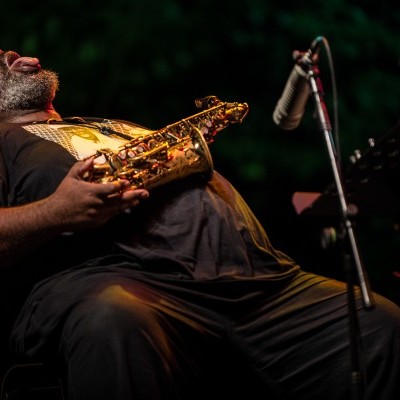
This year’s Jazz em Agosto set by the Darius Jones Trio captured the titular alto saxophonist at his most ferocious.
Aug 26, 2025 1:31 PM
The organizers of Lisbon, Portugal’s Jazz em Agosto Festival assume its audience is thoughtful and independent. Over…